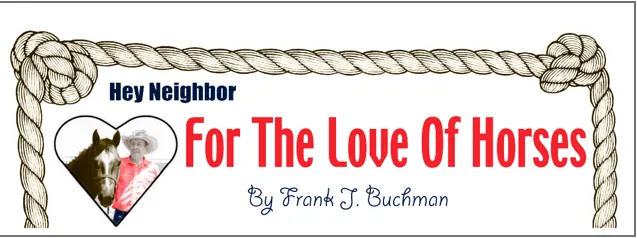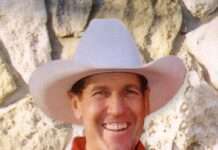Although Lexington, Kentucky, is considered the horse capital of the world, many of the students in Fayette County Public Schools have had little interaction with horses, according to Fayette County FFA correspondent Jodi Helmer.
Erick Torres started going to the horse stables when he was just eight years old. He tagged along with his dad, a professional horse groomer, to help bathe and brush the Thoroughbreds.
The experience convinced Torres that he wanted a career working with horses. When he learned that Locust Trace Agriscience Center in Lexington, Kentucky, had an equine program for high school students, he couldn’t wait to sign up. The program exceeded his expectations.
“It was really fast-paced and really fun, and I learned a lot of things,” Torres said. “It gave me a special boost.”
After his 2020 graduation, Torres accepted a job at the iconic Thoroughbred Center in Lexington as a horse groomer and set his sights on becoming an equine veterinarian. Torres believes the high school program provided the skills and confidence he needs to take his equine career to the next level.
The equine program has been part of the curriculum since Locust Trace opened its doors in 2011.
A partnership between Fayette County Public Schools and the Kentucky Thoroughbred Association expanded the offering, making the program available to all high school students attending the career and technical high school in Lexington.
“An equine program just makes sense in the horse capital of the world,” said Logan Layne, agriculture teacher and FFA advisor at Locust Trace.
Through the program and membership in the Locust Trace FFA Chapter, more than 2,400 students will gain knowledge and exposure to the myriad career possibilities in the equine industry.
“It’s all about exposure,” said Anne DeMott, Locust Trace principal. “Students might not associate a career in technology with agriculture at all, but if we can let students job shadow or take them to places to see how they could take that interest and combine it with agriculture. Those experiences are crucial in building a new generation of agriculturalists.”
Saniyah Smith had no interest in working with horses until she was inadvertently enrolled in the equine program. Now, the Locust Trace alumna hopes to pursue a career in equine dentistry or therapy.
“The equine pathway is so hands-on; you’re working with horses every day,” Smith said. “I like being hands-on, seeing and touching the horses, and being able to look at the different parts of their body.”
Torres agreed. He often points out parts of the equine anatomy while bathing and grooming horses, even sharing the information with his dad.
Environment is one of the biggest benefits of the expanded equine program, according to Fallon Jackson, also an agriculture teacher at Locust Trace.
FFA members are exposed to each component of the three-circle model, combining premier leadership, personal growth, and career success.
They use lessons from the classroom during their field trips and volunteer opportunities at 23 participating horse farms around Lexington.
“It’s the partnership with local farms that makes this program stand out,” Jackson said. “Being able to set students up with internships and experiences will put them leaps and bounds ahead of the competition for career opportunities.”
Through the equine program, Smith has volunteered with the Kentucky Horse Park and the Kentucky Equine Adoption Center.
While Locust Trace FFA members often cite spending time with horses as one of the biggest advantages of participating in the equine program, the classes are about more than just horsin’ around.
Several FFA members have used the program as a foundation for their supervised agricultural experiences (SAEs).
Although she had a lot of experience riding horses and participating in competitions, Crouch admits she didn’t know much about what happened behind the scenes or potential career pathways that would allow her to work with Thoroughbreds. The equine program at Locust Trace changed that.
“It’s amazing, considering we’re in the middle of Lexington, to have a program for city kids who have the passion and the drive to want to be in the ag industry,” Crouch said.
+++30+++
CUTLINES
Locust Trace FFA member Kennedy Spriggs works with her off-track Thoroughbred, Pesto.
Although Locust Trace FFA member Lily Crouch had a lot of experience riding horses and participating in competitions, she didn’t know much about what happened behind the scenes or potential career pathways that would allow her to work with Thoroughbreds. The equine program at Locust Trace changed that.





